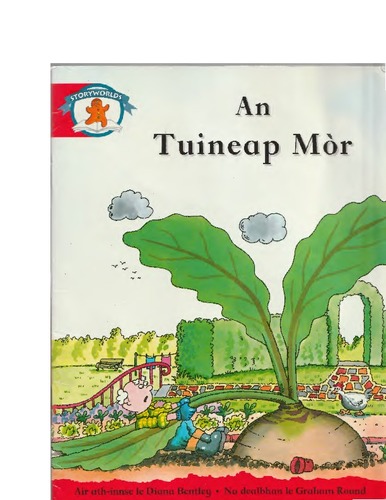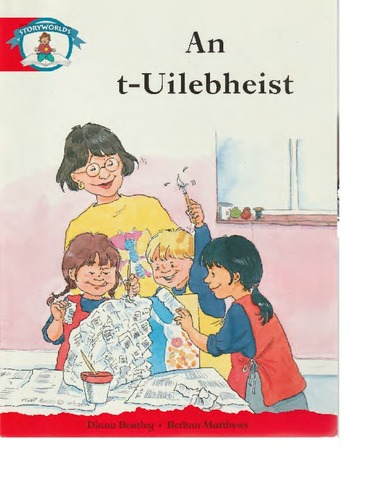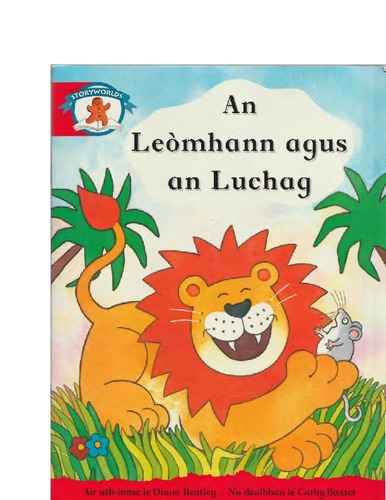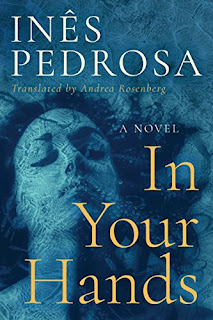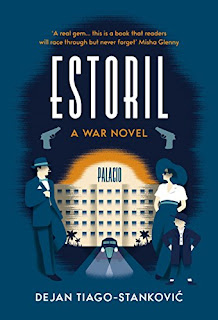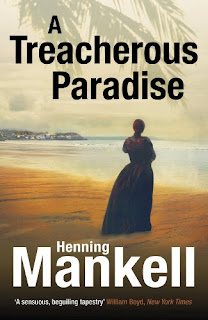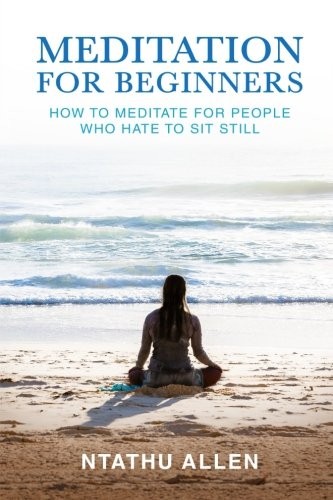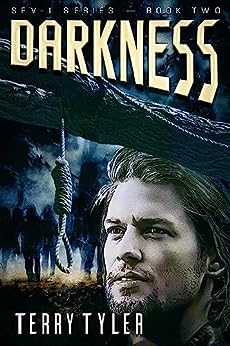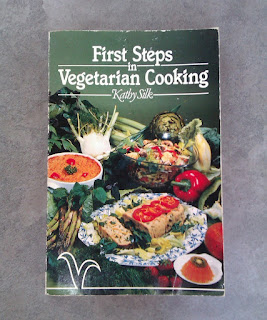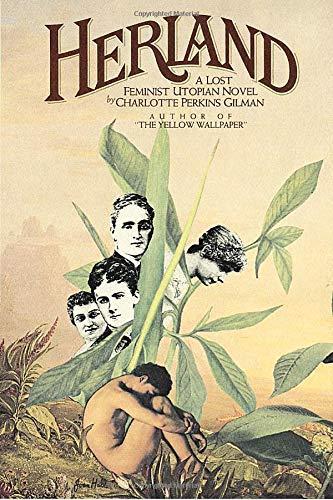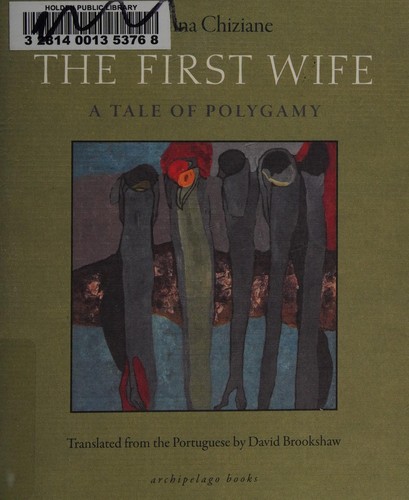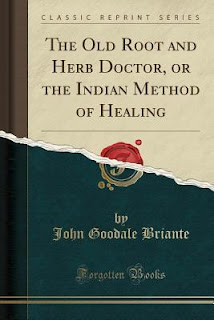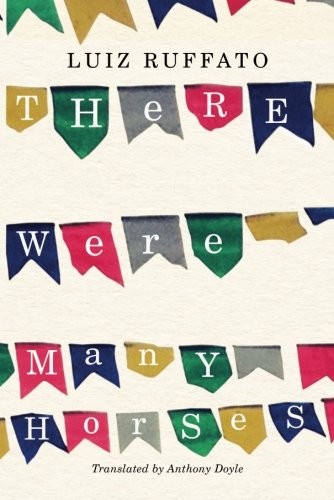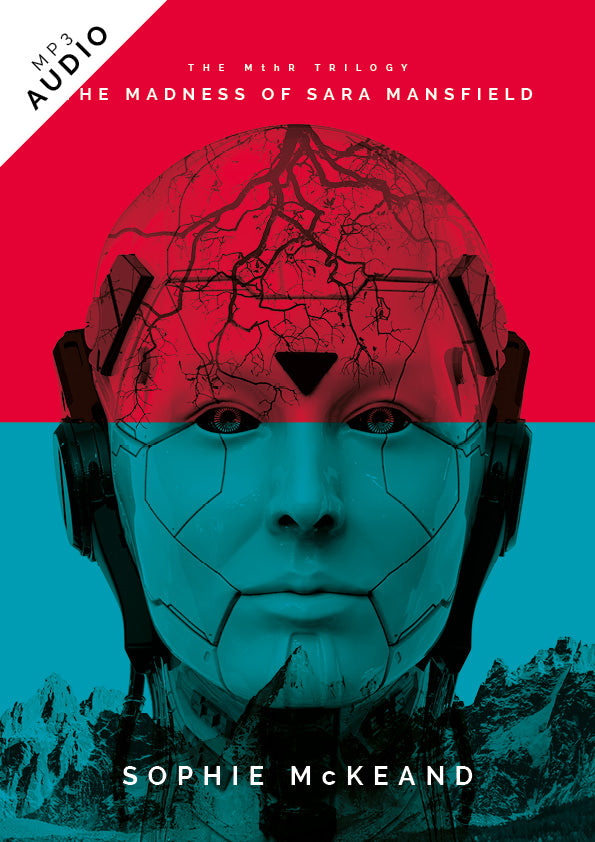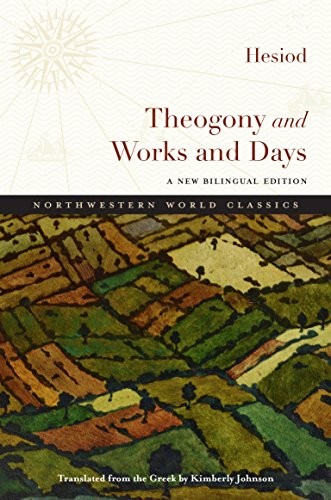Rinn clann uilebheist ann an clas ealain aig an sgoil. Chleachd iad rudan mar bhogsaichean agus botail. Tha a' chlann air fad glè mhodail agus sìobhalta. Cha do dh' fhàg iad an t-seòmar-teagasg na bhlàr-riochd idir!
User Profile
Reader, writer, wanderer, vegan and Gàidhlig learner. I have been been an avid reader for as long as I can remember. I love discovering new authors from all around the world and am happiest when engrossed in a compelling novel with tea and cake to hand.
I review books on three sites of my own: My WorldReads - ko-fi.com/MyWorldReads - focuses on works by global authors. I post new reviews on Sundays, Tuesdays and Thursdays. Stephanie Jane - ko-fi.com/StephanieJane - is a vegan-themed hub with my memoir, Finally a Vegan, for sale in the shop. I post fiction reviews on Sundays and nonfiction on Wednesdays. Is Mise Sìne - ko-fi.com/IsMiseSine - is a bilingual Gàidhlig/English site focusing on mythology, folklore and spirituality.
You can also find me on Mastodon @StephanieJane@veganism.social and @IsMiseSine@PaganPlus
If you like audiobooks, I use Libro.fm for mine supporting the independent House Of Books & Friends bookshop at the same time. Sign up to Libro.fm with my link libro.fm/referral?rf_code=lfm483950 or code lfm483950 to give them a try. (If you opt to start a monthly membership at signup I would earn an audiobook credit.)
This link opens in a pop-up window
User Activity
Stephanie Jane reviewed An t-uilebheist by Diana Bentley
Stephanie Jane reviewed An leòmhann agus an luchag by Diana Bentley
Stephanie Jane reviewed In Your Hands by Andrea Rosenberg
A good start, but faded
3 stars
In Your Hands is the history of a Portuguese family through the second half of the twentieth century narrated in turn by three generations of women: Jenny, her adopted daughter Camila, and Camila's daughter Natalia. Through their words we see how Portuguese society an attitudes change from wartime to Salazar's dictatorship to consumerist freedom. It's an ambitious work yet I didn't feel overwhelmed with History because the relationships between the family members and their friends are always centre stage.
By far my favourite section was the first third where Jenny speaks to us of her unusual domestic life with her husband, Antonio, and his long-term male partner, Pedro. The trio hosts evening salons for creative and artistic friends and I got a strong sense of their vivacious life which, despite setbacks obviously, seemed to be generally happy and satisfying. I could imagine the Lisbon of this period quite well especially …
In Your Hands is the history of a Portuguese family through the second half of the twentieth century narrated in turn by three generations of women: Jenny, her adopted daughter Camila, and Camila's daughter Natalia. Through their words we see how Portuguese society an attitudes change from wartime to Salazar's dictatorship to consumerist freedom. It's an ambitious work yet I didn't feel overwhelmed with History because the relationships between the family members and their friends are always centre stage.
By far my favourite section was the first third where Jenny speaks to us of her unusual domestic life with her husband, Antonio, and his long-term male partner, Pedro. The trio hosts evening salons for creative and artistic friends and I got a strong sense of their vivacious life which, despite setbacks obviously, seemed to be generally happy and satisfying. I could imagine the Lisbon of this period quite well especially after having read Estoril and I liked pragmatic Jenny as a person. Camila was more difficult for me to empathise with as she is quite a closed character. Her narrative centres more on the 1970s which is an era I didn't know much about in Portugal so I was interested to learn more. Glimpses of the war in Mozambique and its independence from Portugal are tantalising and I felt I wanted to read more about Camila's time in Africa. Natalia speaks from the 1990s and this final section is a series of letters ostensibly written to Jenny. Natalia uses dense language which often left me quite baffled and unsure as to what Pedrosa was trying to impart through this character. I didn't get such as strong sense of the woman as I did with Jenny and Camila either.
So unfortunately I found my interest in In Your Hands trailing away the longer I read. Had the novel started with Natalia in fact this probably would have been a DNF for me. However I so enjoyed Jenny's narration that I kept hoping that liveliness would reassert itself so I kept on reading. (Spoiler: it doesn't!) In Your Hands isn't an especially long book, but it did drag considerably by the end which was a shame. I am sure other readers will feel differently about each of the women so I'd be interested to hear different perspectives, however I felt that more from Jenny and then closure at the end of Camila's third would have been preferable.
Stephanie Jane reviewed Estoril by Dejan Tiago-Stankovic
Well researched WW2 espionage novel
3 stars
It's becoming a repeatedly bizarre coincidence, having previously hardly noticed any references, that since I read The Little Prince by Antoine de Saint-Exupery the book seems to be getting namechecked everywhere. In Estoril, Saint-Exupery himself makes an appearance and befriends a young Jewish refugee who may be the inspiration for the eponymous Little Prince. Tiago-Stankovic has certainly done his research for Estoril. The extensive cast of celebrity figures who found themselves benefiting from Portuguese neutrality during the Second World War are vividly brought to life here, together with spies and spymasters and the overworked local head of secret police for whom I frequently felt quite sorry.
Although obviously a work of fiction, Estoril is based in true events. What particularly interested me were the attitudes of many of the people who find themselves stranded in this Portuguese resort, especially in relation to the migrant crisis across Europe today. Mostly rich …
It's becoming a repeatedly bizarre coincidence, having previously hardly noticed any references, that since I read The Little Prince by Antoine de Saint-Exupery the book seems to be getting namechecked everywhere. In Estoril, Saint-Exupery himself makes an appearance and befriends a young Jewish refugee who may be the inspiration for the eponymous Little Prince. Tiago-Stankovic has certainly done his research for Estoril. The extensive cast of celebrity figures who found themselves benefiting from Portuguese neutrality during the Second World War are vividly brought to life here, together with spies and spymasters and the overworked local head of secret police for whom I frequently felt quite sorry.
Although obviously a work of fiction, Estoril is based in true events. What particularly interested me were the attitudes of many of the people who find themselves stranded in this Portuguese resort, especially in relation to the migrant crisis across Europe today. Mostly rich and well connected, several have lost their homes and anything they could not carry, yet they are not vilified as refugees in the West are today. Perhaps wealth or family history are their cushions or perhaps, with most of the continent seemingly on the move in one direction or another, expectations are different.
It took me a while to get used to Estoril not having a strong narrative thread that follows a single person. The storyline is set around the events of the war and we learn about these second-hand, the war itself being physically several hundred miles away even though the opposing nations all have active spies blatantly ignoring Portugal's neutral status. Chapters concentrate on different characters as they settle in or pass through so I thought Estoril often felt more like a collection of linked short stories than a novel. Tiago-Stankovic does well to impart as much background on these people as he can without resorting to lengthy information dumps, but I did find myself losing track of who was who, especially in the second half of the book. Estoril has a good sense of its time period, but I think I needed deeper portrayals of fewer characters in order to fully appreciate it.
Stephanie Jane reviewed Treacherous Paradise by Henning Mankell
Enjoyable historical fiction
4 stars
Having been a tad underwhelmed by my first (and the first) Wallander novel, Faceless Killers, I have since steered clear of Henning Mankell books. However, a lack of choice at my last campsite book exchange meant that I decided to give him another try - especially when I realised that this particular story is historical fiction, not a crime novel. Inspired by a real woman about whom very little is known, Mankell has imagined the life of a young Swedish woman who becomes stranded in early 1900s Mozambique, then snappily known as Portuguese East Africa.
Apparently Mankell partly lives in Mozambique and this familiarity with the country certainly came through in his writing. He describes his locations well from the desperate poverty of rural Sweden to the long boat voyage to the dust and heat of East Africa. I liked how he attempted to portray all sides of the African …
Having been a tad underwhelmed by my first (and the first) Wallander novel, Faceless Killers, I have since steered clear of Henning Mankell books. However, a lack of choice at my last campsite book exchange meant that I decided to give him another try - especially when I realised that this particular story is historical fiction, not a crime novel. Inspired by a real woman about whom very little is known, Mankell has imagined the life of a young Swedish woman who becomes stranded in early 1900s Mozambique, then snappily known as Portuguese East Africa.
Apparently Mankell partly lives in Mozambique and this familiarity with the country certainly came through in his writing. He describes his locations well from the desperate poverty of rural Sweden to the long boat voyage to the dust and heat of East Africa. I liked how he attempted to portray all sides of the African racial divide. As a Swede, our heroine Hanna initially sees herself as apart from all aspects of Lourenço Marques society, but of course her white skin immediately identifies her as belonging to the European colonists rather than with the black townfolk, even though she feels a greater affinity with their predicament having come from a serf underclass herself. It's an interesting angle through which to view the culture clash, although I did think some of Hanna's thoughts and ideas were more 21st century than early 20th. In common with my previous read, The Underground Railroad, I also felt that Hanna wasn't strongly portrayed enough to maintain focus at the centre of this novel. She often behaved more in keeping with a male character than as I felt a woman would do and this jarred for me. Other than that, I enjoyed reading A Treacherous Paradise and am interested to discover more of Mankell's historical novels.
Stephanie Jane reviewed Meditation for Beginners by Ntathu Allen
The right book at the right time
4 stars
Reading two spiritually-themed books in the previous month - the novel The Seekers' Garden by Isa Pearl Ritchie and self help guide Humanity's Cry For A Change by Kate Heartsong - revived my enthusiasm for learning to meditate properly so it seemed particularly apt timing when TCK Publishing offered me a review copy of Meditation For Beginners by Ntathu Allen. As Allen herself mentions in this book, 'when the student is ready, the teacher will appear' and that sentiment rang particularly true. Previously I have enjoyed meditating after a yoga class, but I wanted a way in which to also meditate without that hour-long lead-in. Surprisingly, Meditation For Beginners felt as though it was particularly tailored for this situation with Ntathu Allen understanding exactly the catch-22 of people needing meditation in order to gain calm in their hectic lives yet those selfsame lives being the reason meditation seems impossible!
I …
Reading two spiritually-themed books in the previous month - the novel The Seekers' Garden by Isa Pearl Ritchie and self help guide Humanity's Cry For A Change by Kate Heartsong - revived my enthusiasm for learning to meditate properly so it seemed particularly apt timing when TCK Publishing offered me a review copy of Meditation For Beginners by Ntathu Allen. As Allen herself mentions in this book, 'when the student is ready, the teacher will appear' and that sentiment rang particularly true. Previously I have enjoyed meditating after a yoga class, but I wanted a way in which to also meditate without that hour-long lead-in. Surprisingly, Meditation For Beginners felt as though it was particularly tailored for this situation with Ntathu Allen understanding exactly the catch-22 of people needing meditation in order to gain calm in their hectic lives yet those selfsame lives being the reason meditation seems impossible!
I loved how Allen pitches Meditation For Beginners. Reading her words is calming in itself which put me into a great frame of mind to begin practice. I also realised that through the way in which I achieve mindfulness doing two of my favourite hobbies, walking and crochet, I have effectively already been meditating. Tapping into those mindsets helped immensely with my first few sitting still meditations so I'm immensely grateful to Allen for pointing out the link. Allen's reassuring observations on incorporating meditation into my daily routine without requiring specific equipment or settings, really struck a chord too. It's too early yet to say whether meditation will root itself fully this time, but I already feel far more confident in my practice than I have done in the past and, after a week, am still eagerly anticipating my meditation time rather than it beginning to feel like a burden.
Stephanie Jane reviewed Darkness by Terry Tyler
A thrilling sequel
4 stars
Darkness continues the exciting story that began in Infected, revisiting the surviving characters several months after the initial virus outbreak to discover how they are faring in this very different Britain. In this book, while the hordes of infected people are still very much a dangerous reality, their weaknesses are understood so they can be despatched fairly efficiently. Where the threat lies now is in the actions of other survivors, some of whom are interested in peaceful co-operation and others who aren't!
Terry Tyler is so good at creating characters who are realistically neither good or bad, people who try their best but can still do horrific things, or those who appear lacking in empathy yet are unexpectedly kind. I was particularly interested in how characters like Bonnie, Lion and Ratt took advantage of their perceived opportunities.
Elements of Darkness were reminiscent of Tyler's Operation Galton series so I am …
Darkness continues the exciting story that began in Infected, revisiting the surviving characters several months after the initial virus outbreak to discover how they are faring in this very different Britain. In this book, while the hordes of infected people are still very much a dangerous reality, their weaknesses are understood so they can be despatched fairly efficiently. Where the threat lies now is in the actions of other survivors, some of whom are interested in peaceful co-operation and others who aren't!
Terry Tyler is so good at creating characters who are realistically neither good or bad, people who try their best but can still do horrific things, or those who appear lacking in empathy yet are unexpectedly kind. I was particularly interested in how characters like Bonnie, Lion and Ratt took advantage of their perceived opportunities.
Elements of Darkness were reminiscent of Tyler's Operation Galton series so I am curious to see know how the bigger picture develops. Is rebuilding a form of our previous society a genuine possibility or will the virus thwart everyone's attempts? Roll on book 3!
A treasure!!
4 stars
A lovely vegetarian cookery book from almost 40 years ago! Kathy starts by encouraging readers to undertake one V-day a week - what has now morphed into the Meatless Monday or Meatfree Monday ideas - and add more dedicated V-days as their vegetarian cooking confidence grows. This is pretty much exactly how I started my vegan journey and can attest to its success.
Although some of Kathy's recipes include milk and cheese, they can easily be veganised, thereby avoiding the vegetarian step to jump straight to fully Vegan-days without any extra stress. Kathy herself recommends plantmilks and I successfully used commercially available vegan cheese in my recreations of her recipes. There's some quaint reminders of how much has changed over the past 40 years - curry powder being a singular thing for example rather than the wide variety of blends we now have available - and other plantbased staples have …
A lovely vegetarian cookery book from almost 40 years ago! Kathy starts by encouraging readers to undertake one V-day a week - what has now morphed into the Meatless Monday or Meatfree Monday ideas - and add more dedicated V-days as their vegetarian cooking confidence grows. This is pretty much exactly how I started my vegan journey and can attest to its success.
Although some of Kathy's recipes include milk and cheese, they can easily be veganised, thereby avoiding the vegetarian step to jump straight to fully Vegan-days without any extra stress. Kathy herself recommends plantmilks and I successfully used commercially available vegan cheese in my recreations of her recipes. There's some quaint reminders of how much has changed over the past 40 years - curry powder being a singular thing for example rather than the wide variety of blends we now have available - and other plantbased staples have stood the test of time.
Stephanie Jane reviewed Herland by Charlotte Perkins Gilman
An overlooked classic
4 stars
Herland was the Goodreads Vegan Book Club book choice for April 2021 which is why I finally stopped procrastinating about reading this utopian feminist classic and downloaded a Project Gutenberg ebook. I was surprised by just how much I enjoyed the story. It is somewhat dated in places with concepts such as 'negative eugenics' engendering a sense of unease, but I felt I could very happily have lived in Herland myself. Gilman has managed to upend our learned understanding of enforced gender roles, instead envisaging a single gendered country where all opportunities are open to everybody.
I liked how the three male characters, each such a stereotype, were used to illustrate the daftness of quite a lot of our society's customs - or those of a hundred years ago at least. I'm not sure if a Herland narrator would have had the same impact, especially to an audience whose mindsets …
Herland was the Goodreads Vegan Book Club book choice for April 2021 which is why I finally stopped procrastinating about reading this utopian feminist classic and downloaded a Project Gutenberg ebook. I was surprised by just how much I enjoyed the story. It is somewhat dated in places with concepts such as 'negative eugenics' engendering a sense of unease, but I felt I could very happily have lived in Herland myself. Gilman has managed to upend our learned understanding of enforced gender roles, instead envisaging a single gendered country where all opportunities are open to everybody.
I liked how the three male characters, each such a stereotype, were used to illustrate the daftness of quite a lot of our society's customs - or those of a hundred years ago at least. I'm not sure if a Herland narrator would have had the same impact, especially to an audience whose mindsets would have been more likely in tune with those of Terry, Jeff or Van. If Gilman had written Herland today, I would have been upset at her telling this women's story through male eyes, but instead I'm taking it as a sign of just how far mainstream literature has progressed in the interim.
Gilman shows interesting foresight in several of her assumptions about what makes Herland such a successful community. Animal agriculture being discontinued in favour of a plantbased diet purely because of the inefficiency of feeding farmed animals far more than they provide by way of nutrition is an idea that I see frequently argued now, over a century since Herland was written. The Herland women also live with an eye firmly set to their community's future. Fruit and nut tree forests are widely planted and their educational emphasis is on how the next generation can build upon the successes of their mothers and grandmothers. Herland does not stagnate through chaining itself to outdated traditions and cultural practices.
If Herland was a male-centred book, I would quite expect it to have become a cult blueprint for alternative community bubbles across the Western world. I can see how many aspects of the Herland communal living ethos could benefit all people in the real world. Perhaps its time has now come?
Stephanie Jane reviewed The first wife by Paulina Chiziane
An absolute joy to read
5 stars
When I realised The First Wife was the first published novel by a Mozambican woman I was eager to read it. The book could be considered to be pretty typical women's fiction fare as it centres on Rami's efforts to keep her straying husband, Tony, by her side. However Chiziane's powerful writing and gorgeous prose lift The First Wife way above its genre and I absolutely loved reading it. The poetical sweeps of language are frequently breathtaking and Brookshaw has done a superb job of their translation. I never once felt distracted by an awkward phrase.
Chiziane shows us Mozambique life and society through the eyes of her narrator, Rami, highlighting the differences between men and women, north and south, tradition and modernity. It's for books like this that I love searching out world literature - my preconceptions about lifestyle and marriage choices have been challenged by views from a …
When I realised The First Wife was the first published novel by a Mozambican woman I was eager to read it. The book could be considered to be pretty typical women's fiction fare as it centres on Rami's efforts to keep her straying husband, Tony, by her side. However Chiziane's powerful writing and gorgeous prose lift The First Wife way above its genre and I absolutely loved reading it. The poetical sweeps of language are frequently breathtaking and Brookshaw has done a superb job of their translation. I never once felt distracted by an awkward phrase.
Chiziane shows us Mozambique life and society through the eyes of her narrator, Rami, highlighting the differences between men and women, north and south, tradition and modernity. It's for books like this that I love searching out world literature - my preconceptions about lifestyle and marriage choices have been challenged by views from a totally different culture and yet I could still strongly identify and empathise with Rami and her views on what it means to be a woman. We see, smell and taste love and betrayal, faith and hypocrisy. I would urge everyone who enjoys beautifully constructed sentences to rush out and buy this book as well as literary and women's fiction fans. The First Wife is often a far from a happy tale, but I found it an absolute joy to read.
A curious little book
3 stars
I downloaded The Old Root And Herb Doctor back in April, when it was the ForgottenBooks free book of the day, because I thought it looked interesting. I then promptly lost it in my tablet's downloads which is why it has taken me so long to actually read the book. I was disappointed to realise that the 'Indian' of the subtitle actually refers to Native Americans rather than people of India so I wasn't able to put my spice collection to good use, however the book is a fascinating little tome in its own right. Other than a few short essays, it is mainly made up of recipes for tinctures, infusions and poultices for various ailments that were rife in the 1860s and 1870s. Briante is keen that his book should be read and used by the sort of people who would otherwise go to 'quack doctors', insisting that his …
I downloaded The Old Root And Herb Doctor back in April, when it was the ForgottenBooks free book of the day, because I thought it looked interesting. I then promptly lost it in my tablet's downloads which is why it has taken me so long to actually read the book. I was disappointed to realise that the 'Indian' of the subtitle actually refers to Native Americans rather than people of India so I wasn't able to put my spice collection to good use, however the book is a fascinating little tome in its own right. Other than a few short essays, it is mainly made up of recipes for tinctures, infusions and poultices for various ailments that were rife in the 1860s and 1870s. Briante is keen that his book should be read and used by the sort of people who would otherwise go to 'quack doctors', insisting that his own proffered remedies would be far more successful in healing the afflicted. I don't know if he actually learned from Native American healers or if this claim is his own attempt at clever marketing!
I think one would already need some expertise or local guidance in making up cures before attempting any of Briante's recipes because he is often quite vague about things like which part of a specific plant to use. The section on poisoning seems to include several treatments for the same plants I had seen recommended as cures in earlier chapters which was a little alarming. Recipes calling for ingredients such as a ground up old boot were also eye-opening. I probably won't risk any of Briante's cures myself, but as a historical curiosity it's a fun read and I can imagine it could be of particular use to authors writing historical fiction about this era.
Stephanie Jane reviewed There Were Many Horses by Luiz Ruffato
Breathless, stream-of-consciousness brilliance!
5 stars
I hesitate to call There Were Many Horses a novel because this experimental piece of writing doesn't conform to that expected format at all. I think the closest work I have previously read was Joe Fiorito's Rust Is A Form Of Fire although There Were Many Horses spreads its vision across a whole city rather than a single corner, describing Sao Paulo via a multitude of voices. Ruffato writes about a single day by way of sixty-eight vignettes. Some are just a few lines - a horoscope or a weather report. Others, my favourites, extend to several pages of breathless stream-of-consciousness prose which I found an absolute joy to read even though their subject matter is frequently disturbing.
People die violently in Sao Paulo. Poverty, drugs, corruption, prostitution and alcoholism are rife and we learn about their victims at first hand. There Are Many Horses begins with a Cecilia Meireles …
I hesitate to call There Were Many Horses a novel because this experimental piece of writing doesn't conform to that expected format at all. I think the closest work I have previously read was Joe Fiorito's Rust Is A Form Of Fire although There Were Many Horses spreads its vision across a whole city rather than a single corner, describing Sao Paulo via a multitude of voices. Ruffato writes about a single day by way of sixty-eight vignettes. Some are just a few lines - a horoscope or a weather report. Others, my favourites, extend to several pages of breathless stream-of-consciousness prose which I found an absolute joy to read even though their subject matter is frequently disturbing.
People die violently in Sao Paulo. Poverty, drugs, corruption, prostitution and alcoholism are rife and we learn about their victims at first hand. There Are Many Horses begins with a Cecilia Meireles quote "There were so many horses but no one remembers their names" and those words accurately sum up how I was left at the end of the book. Many of Ruffato's people are actually named, but there are so many struggling to cope with such desperate lives that they blend into a flood of humanity. I remember details now, but couldn't tell you which tale was whose and, as a reader, it doesn't matter. What is wonderfully memorable is the frantic metropolitan atmosphere created and the sense almost of having genuinely visited Sao Paulo. On the strength of There Were Many Horses though, it is not somewhere I really want to go!
I'm thrilled to have discovered this trilogy!
5 stars
The Madness of Sara Mansfield was a fascinating read for me and one which was scarily plausible given how much of many people's lives are experienced through screens rather than directly. Witnessing the MthR operating system through several interlinked storylines allowed me to gain a good understanding of the effects of such an incredible technological jump, even while I didn't quite grasp the intricate details of how it all worked.
What kept me gripped throughout this novel was seeing each woman's experiences shaped her opinion of - and reactions to - MthR and the resulting society. I could see that for some, the tradeoff was beneficial. MthR's manipulation of their world allowed people to believe they had good lives while being able to ignore the reality of their situation. Others could not accept the loss of personal freedom and chose to try and remain outside MthR's clutches.
One of the …
The Madness of Sara Mansfield was a fascinating read for me and one which was scarily plausible given how much of many people's lives are experienced through screens rather than directly. Witnessing the MthR operating system through several interlinked storylines allowed me to gain a good understanding of the effects of such an incredible technological jump, even while I didn't quite grasp the intricate details of how it all worked.
What kept me gripped throughout this novel was seeing each woman's experiences shaped her opinion of - and reactions to - MthR and the resulting society. I could see that for some, the tradeoff was beneficial. MthR's manipulation of their world allowed people to believe they had good lives while being able to ignore the reality of their situation. Others could not accept the loss of personal freedom and chose to try and remain outside MthR's clutches.
One of the most interesting characters for me was Nneka, a woman physically right at the heart of Mont Blanc, yet who was mentally beginning to question the system. The eponymous Sara also intrigued me although I felt that I wasn't close enough to her to really understand her decisions - much like Nneka perhaps! I also wanted a deeper understanding of Alex, although I am not sure that even Alex understood themselves at this point so I am hoping to develop more clarity in the next book of this trilogy.
I loved how Sophie McKeand incorporated Welsh language and culture into The Madness Of Sara Mansfield, as well as running ideas of the operating system, MthR, alongside the Great Mother, being the natural world and Earth herself. While this novel is an entertaining and gripping read, it is also deeply thought-provoking and I found myself unable to devour the book at my usual fast pace, preferring instead to frequently pause and think over the characters' words and actions. It's not common for a book to capture my attention in this way so I am thrilled to have discovered this one and keen to continue with the trilogy soon.
Stephanie Jane reviewed Theogony and Works and Days by Hesiod
It's amazing to be able to read such an ancient text
4 stars
I love reading ancient work when I can find a good modern translation - the Epic of Gilgamesh, Beowulf - and Kimberly Johnson's work in translating Hesiod's two great poems here certainly fits the bill for me. It is amazing to think his words were originally spoken getting on for three millennia ago, yet in his ideas about how people should live in order to be in harmony with themselves and nature, Hesiod is surprisingly relevant - if I ignore his blatant misogyny of course!
Not being totally well-versed in Ancient Greek mythology, I did struggle to keep up with exactly who is who in Theogony. This poem namechecks, I think, all the Greek Gods and Goddeses Hesiod knew of, briefly referencing some of their stories, but obviously expecting an audience to already be familiar with every one. As a novice, I am now completely baffled by the pantheon, but …
I love reading ancient work when I can find a good modern translation - the Epic of Gilgamesh, Beowulf - and Kimberly Johnson's work in translating Hesiod's two great poems here certainly fits the bill for me. It is amazing to think his words were originally spoken getting on for three millennia ago, yet in his ideas about how people should live in order to be in harmony with themselves and nature, Hesiod is surprisingly relevant - if I ignore his blatant misogyny of course!
Not being totally well-versed in Ancient Greek mythology, I did struggle to keep up with exactly who is who in Theogony. This poem namechecks, I think, all the Greek Gods and Goddeses Hesiod knew of, briefly referencing some of their stories, but obviously expecting an audience to already be familiar with every one. As a novice, I am now completely baffled by the pantheon, but enjoyed Hesiod's poetic flow especially in the sections where he effectively just lists name after name after name. I was reminded of Tom Lehrer's Perodic Table song and wondered if these passages were structured as an aide-memoire as well as being fun to recite aloud (yes, I did!).
Works And Days concerns itself more with the practicalities of human life and meanders around a variety of subjects. As poetry, I was less impressed with this second offering, but did appreciate the inclusion of a stream of bizarre maxims and superstitions at the end. It turns out there are propitious days for pretty much everything! I imagine trying to actually live observing all of them would be exasperating.
Where I felt I most benefited from this edition of Theogony and Works And Days was in their introductory essays which are very informative and gave me good pointers on phrases to watch out for, without being dry and overly scholarly. I also liked that both poems are presented bilingually in sections so anyone able to read Greek can easily switch between the two languages. Despite not having this ability, I began to identify certain names as I went through and would certainly have appreciated this approach when I studied Classical Civilisations for GCSE.

